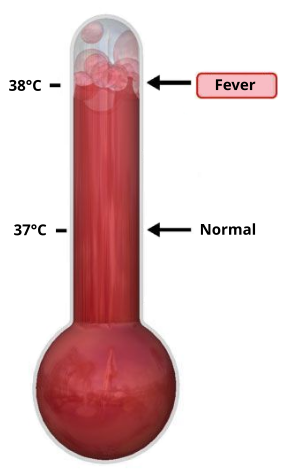It's been almost 2 months since I did my last Bits and Pieces post, so I figured it's high time I put together another collection of interesting (at least to me) links and other tidbits of information mostly having to do with Multiple Sclerosis.
As usual, there's been a steady stream of news related to MS, from outrageous behavior by Big Pharma to MS drug info to insights into possible causes of the disease. Believe it or not, I find such info a refreshing distraction from the nonstop barrage of news about the idiots in Washington doing their utmost best to screw up a perfectly good country, and a world that seems to be flying apart at the seams.
It's a sad commentary when plumbing for research about a miserable disease is more enjoyable than simply perusing the latest world and national news. One of Shakespeare's most famous lines is, "The first thing we do, let's kill all the lawyers". These days, he might be more apt to write, "The first thing we do, let's kill all the politicians". Not that I'm advocating violence, as I'm an extremely nonviolent person, but metaphorically, at least, all of those supposedly in charge, every single last one of them, need to be put out of our misery…
As for me, I'm continuing my monthly IVIG infusions, which do seem to be having some benefit. Unfortunately, for the last month or so I've been battling a weird low-level fever that is really pissing me off. Feeling like crap for weeks on end is no fun, but this coming week I have several doctors’ appointments that hopefully will get this thing figured out. Otherwise, I may soon be urging "The first thing we do, let's kill all the doctors"…
Anyway, on with the show. I hope you find the following items to be scintillating and effervescent. On second thought, that may be that's asking a bit much, so at the very least I hope you'll find these tidbits worthy of your attention…
· This article (click here), from the New York Times, details yet more bad behavior by the Big Pharma companies. It seems that the pharmaceutical companies have been sponsoring drug trials designed not so much as to investigate a drug's efficacy, but to popularize the drug among the doctors taking part in the trial. To this end, drugs that have already been approved by the FDA are "investigated" in trials designed not by the company's research departments, but by their marketing people. Called "seeding trials", these sham investigations’ primary purpose is to familiarize physicians with pharmaceutical products in the hopes that they will increase writing prescriptions for them.
As the article states, "In a typical seeding trial, a pharmaceutical company will identify several hundred doctors and invite them to take part in a research study. Often the doctors are paid for each subject they recruit. As the trial proceeds, the doctors gradually get to know the drug, making them more likely to prescribe it later."
To say that the ethics of this practice are questionable would be quite the understatement, as patients participating in these trials believe they may be contributing to the greater good, when in fact all they're doing is contributing to the bottom line of the pharmaceutical companies. Patients have died as a result of these trials, yet the government is powerless to do much about them, since most of the rules governing trials were written over 40 years ago, when most medical research was carried out by academic facilities. These days, the vast majority of research is conducted by for-profit companies, leading to outrageous abuses like seeding trials that blatantly manipulate patient populations strictly for financial gain. Is there any wonder why almost every chronically ill patient I know oozes with cynicism regarding the entire medical establishment? Shame on all involved…
· Speaking of the drug companies, some of them have suffered setbacks in bringing oral MS medications to market. Teva Pharmaceuticals, makers of Copaxone, have been hard at work trying to get their new oral MS compound, Laquinimod, through the trial process for eventual approval by the FDA. The results of the latest Laquinimod trial (click here) showed that it worked no better than placebo, severely impacting the drug's eventual chances for ever being made commercially available. Of course, this news was reported in the business pages, as it also negatively impacted Teva's stock price, which fell precipitously. My heart bleeds…
Meanwhile, German drugmaker Merck has decided it will not seek approval of its oral drug Cladribine for use in combating Multiple Sclerosis (click here). Cladribine is an older drug that has been used to treat leukemia, and although it appeared somewhat effective in reducing relapses in MS trials, the drug has a nasty side effect profile, and the company decided that Cladribine probably wouldn't be competitive in the MS drug marketplace.
Another negative trial demonstrated that simvastatin, otherwise known as Zocor, was ineffective as an add-on treatment to Interferon B (Rebif, Avonex, and Betaseron) when used on MS patients (click here). Earlier studies had hinted that the statin drugs, currently used to control cholesterol levels, might be beneficial to MS patients, an idea that this study apparently disproves.
The cost-effectiveness of the MS Disease Modifying Drugs in general, at least here in the US, was called into question by this study (click here) citing their extremely high cost versus their moderate long-term efficacy. The study notes that the interferon drugs cost three times as much in the US as they do in the UK, and that if costs in the United States could be brought more in line with those paid by the rest of the world, the drugs could then be deemed cost-effective. Why do the pharmaceutical companies charge three times as much for the same drug in the United States when compared to other countries? Because they can. Regulation bad. Price gouging good…
· It's long been thought that viruses play some role in starting the MS disease process. Several new studies certainly seem to bear this out, with the primary culprits being viruses in the herpes family. Epstein-Barr virus (EBV) in particular has been singled out as very likely being in MS instigator, with some researchers going so far as to state that if a person isn't infected with EBV, they will not get MS.
EBV is the virus that causes Mononucleosis, but often those carrying the virus never had Mono, as EBV infection can manifest as a respiratory infection, and can even sometimes be completely asymptomatic. Most of the population (upwards of 90%) carries EBV, so EBV infection alone can't cause MS, but several new studies to offer intriguing insights into the role that the virus may play. This paper (click here) offers a comprehensive overview of EBV and MS. It's kind of a heavy read, but offers a keen analysis of the available information. This study (click here) demonstrates that MS patients were almost 3 times as likely to be infected with both strains of EBV (there are two distinct types of the virus) as healthy control subjects. Another study, out of Australia, demonstrates that people with a particular genetic subtype are 20 times as likely to develop MS when infected with EBV as is the general population (click here).
Epstein-Barr, though, is not the only virus seemingly implicated with MS. A study done in Taiwan, which looked at hundreds of thousands of patients, showed that people who suffered an outbreak of shingles were four times as likely to develop MS within the year (click here). Shingles is a very painful skin condition that is caused by the Varicella Zoster, the same virus that causes chickenpox. Varicella Zoster is a cousin of EBV, as both are herpes viruses. Another herpes virus that seems to be related to MS is HHV-6 (Human Herpes Virus 6), which is talked about extensively in this paper (click here).
So, by what mechanism might these viruses play a role in the development of MS? It certainly seems that a genetic predisposition is required, and this article, "The Insanity Virus" (click here) offers a tantalizing theory that helps tie all of this together. If you don't read any of the other links in this post, please read this one, as I believe "The Insanity Virus" is a MUST READ for anybody with MS. The title of the piece refers to schizophrenia, but MS plays a prominent role in the article.
In the years since the human genome has been mapped, it's been found that over 90% of our DNA is "junk", and not needed to make a human being. A lot of this junk is comprised of the remnants of ancient retroviruses, which at some point in our evolutionary history were infectious, but over the course of hundreds of thousands of years became incorporated into our DNA as what had been thought to be harmless pieces of deactivated genetic material.
Now, research is showing that this supposedly harmless retroviral DNA can suddenly be switched "on" by the presence of chronic infections just like those represented by the human herpes viruses. Once this long dormant genetic material has been activated, our very own cells produce viral proteins that send our immune systems into attack mode, thus leading it to go cannibal and set out destroying a patient's own central nervous system. This is a fascinating revelation, and one that can explain some of the major mysteries regarding the roots of Multiple Sclerosis. Truly, the importance of these findings cannot be overstated.
· On the CCSVI front, research seems to be moving steadily along. This September, some major CCSVI research papers are expected to be published, and several of the ongoing CCSVI research projects are expected to reveal preliminary results at the upcoming ECTRIMS (European Committee for Research and Treatment in Multiple Sclerosis) meetings in late October.
A very good paper was recently published that gives a very balanced overview of the current state of CCSVI research, both pro and con (click here). This is another very worthwhile read.
Many MS patients are aware that former talk show host Montel Williams recently underwent CCSVI treatment venoplasty. He is going to divulge the results of his procedure on a TV special cohosted by celebrity physician Dr. Oz, currently scheduled for September. Montel recently made an appearance on Fox Business News, during which the conversation steered towards his MS "surgery" (click here for video) . His comments offer a big tease about the results of his procedure, which apparently were quite positive. Unfortunately, you'll have to sit through a commercial first, but once that's done, if you drag the slider to about 2 min. and 30 seconds into the interview, you'll find Montel's intriguing comments on his CCSVI procedure.



















